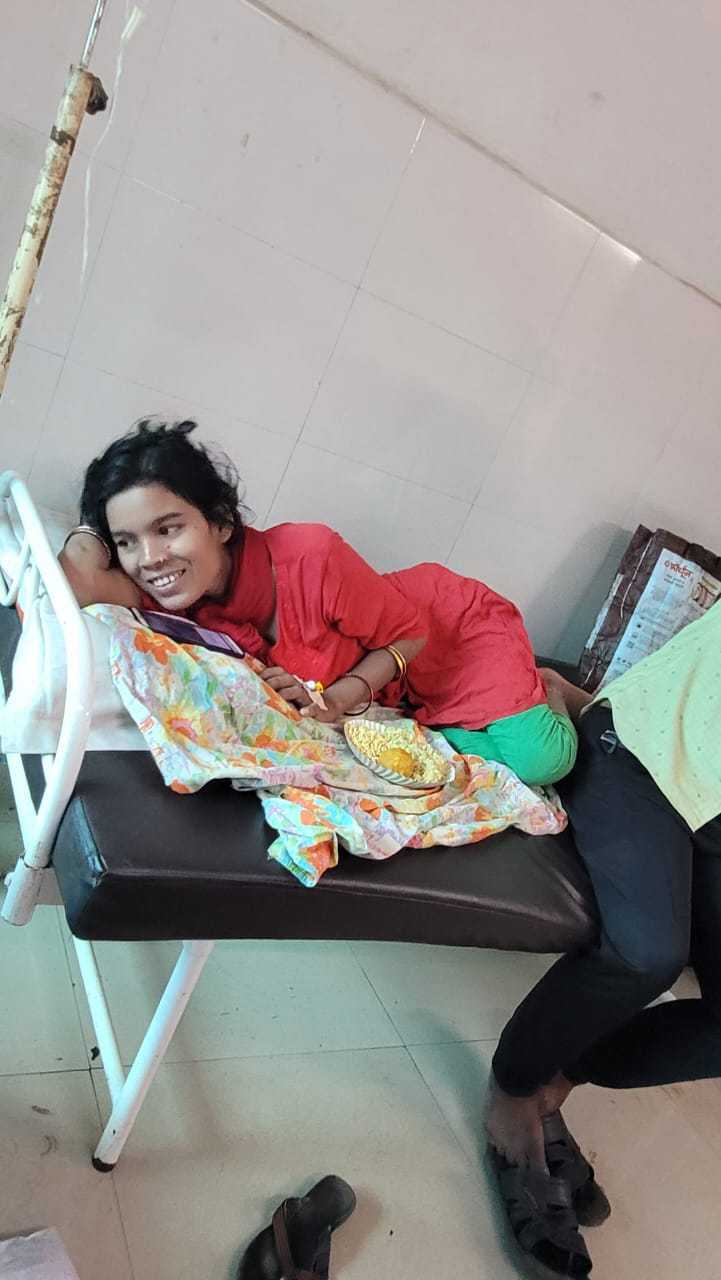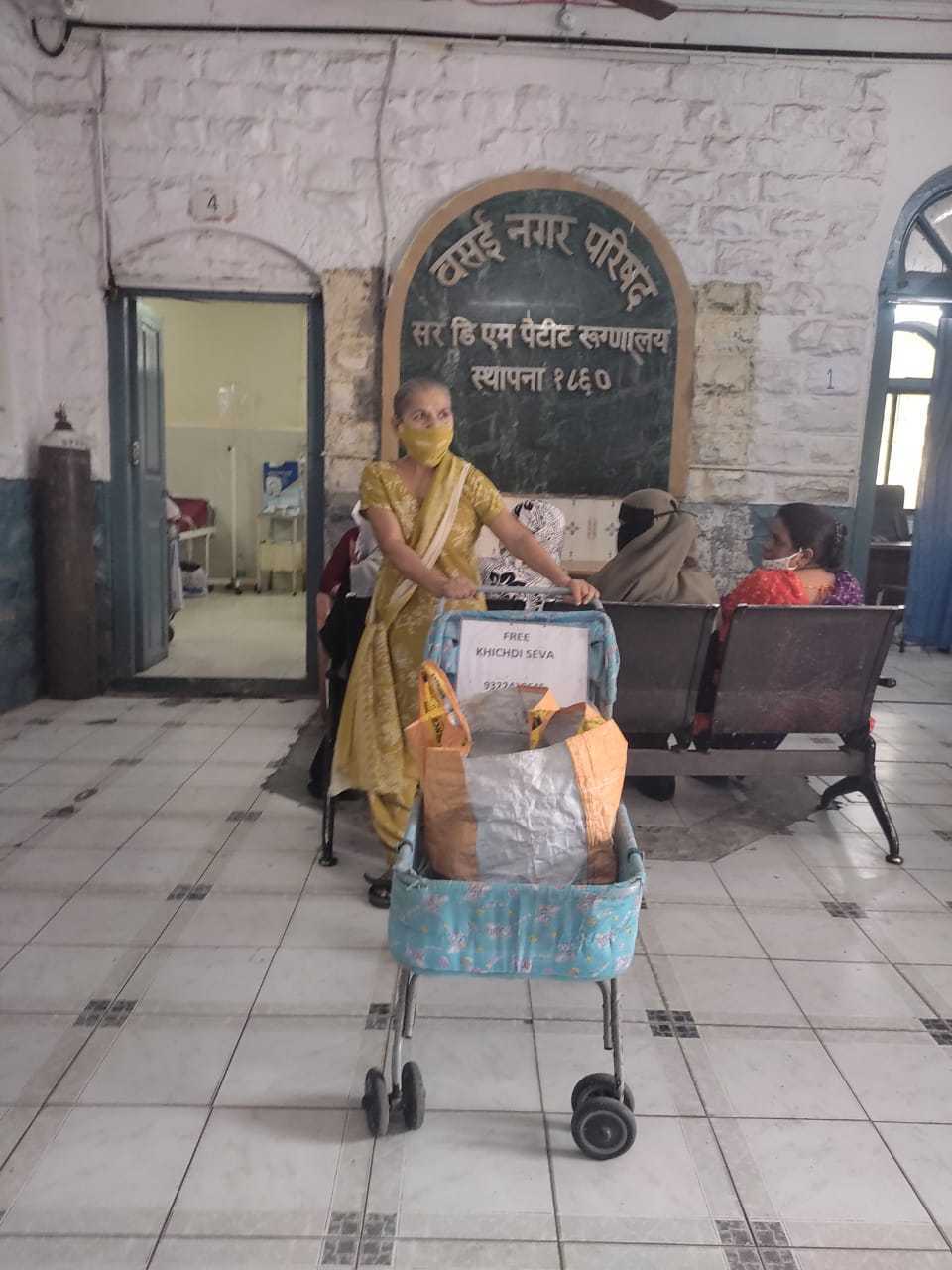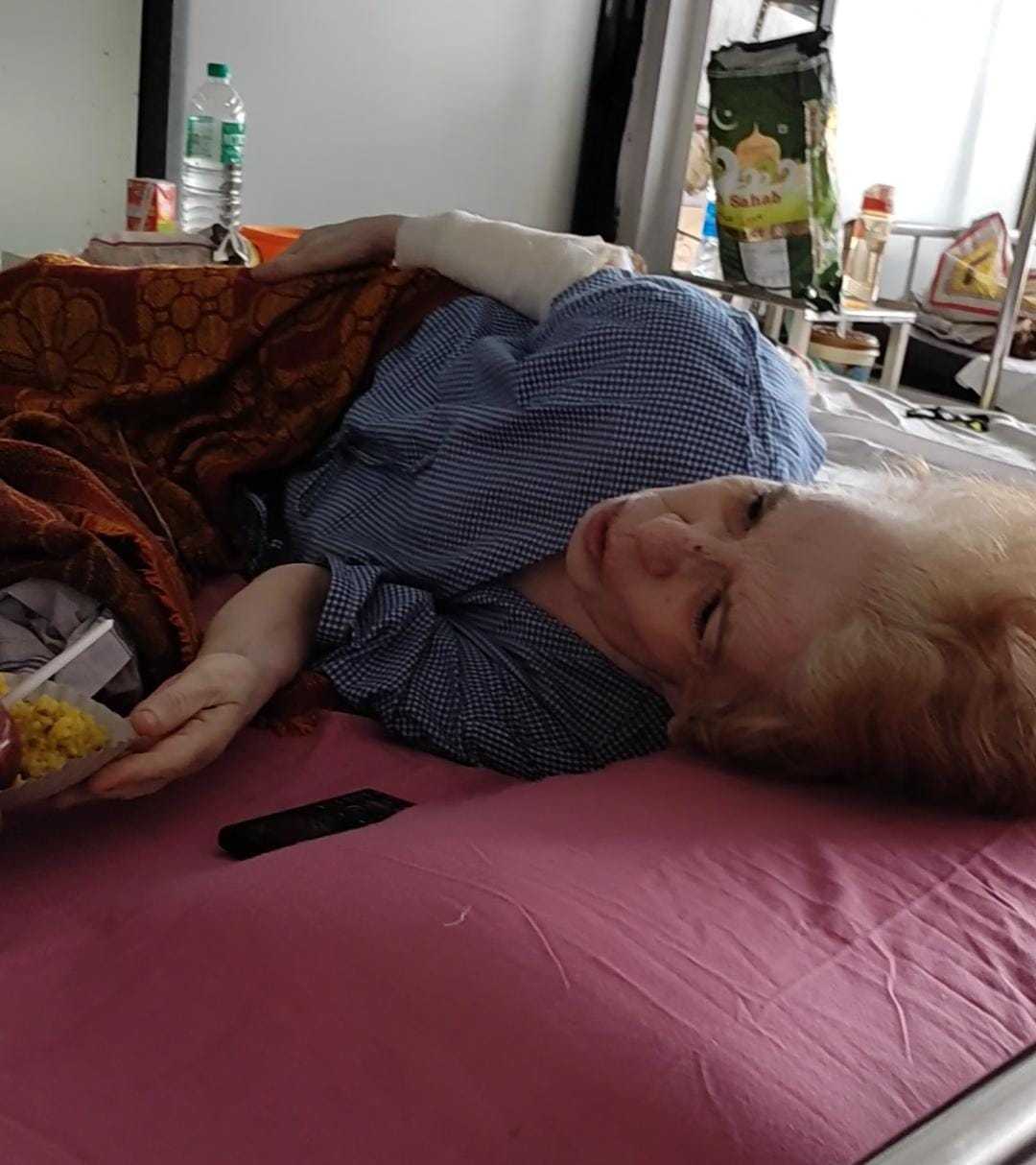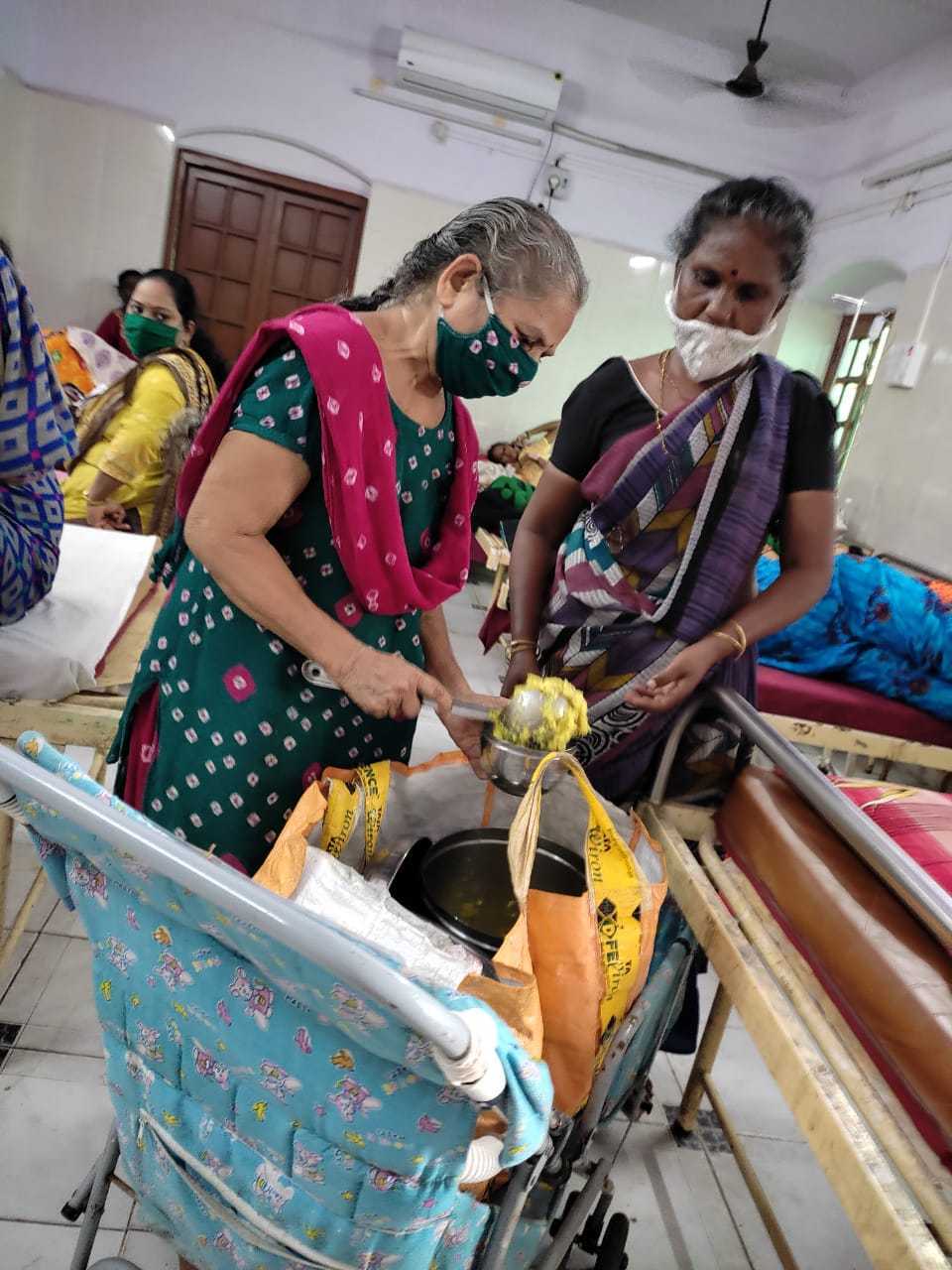Uncertainty is evident among the patients at the DM Petit Government Hospital’s OPD (Out-Patient Department) in Palghar, Maharashtra. Patients from over 15 nearby villages wait from the wee hours of the morning until the OPD shuts at 2 pm. As lunchtime approaches, their hunger becomes apparent, but not for long.
The patients eagerly watch the hospital’s main door, knowing that Kiran Kamdar will arrive soon, with her trolley loaded with boxes of khichdi (rice and lentil porridge).
Kiran, a 62-year-old from Palghar, spends the next several hours going from room to room, serving the hot meal to over 100 people at the hospital every day — including patients and their families, who relish it. Despite her Parkinson’s disease, which makes her full body muscles stiff and affects her balance, she begins preparing these meals at 5 am every morning.
Five years ago, Parkinson’s diagnosis shook her world. It made her question whether she would be able to continue her active routine life — from bustling about the home kitchen and teaching neighbourhood children to looking after a son diagnosed with cerebral palsy.
“My mother takes great care of my brother and my sister-in-law who has polio,” shares Palak, her daughter. “When my brother was born, the doctors said he would require a lot of care. My mother devoted her time to caring for him. And in her free time, she would teach poor vernacular medium kids in Classes 1 to 10 for free.” So, following the fated diagnosis in 2018, she says the family hoped it would not put a stopper to Kiran’s active life.
But Kiran showed no signs of slowing down, her husband Girish shares. “She is one of the most positive women I have seen.”
While Kiran began spending a lot of time at home two years into the diagnosis, she was constantly on the lookout for something to keep herself occupied. And in February 2021, an idea came to her.

A dream to serve
“A friend of mine was hospitalised and I was visiting her with my mom,” recalls Palak. The duo was shocked to see the hospital flooded with patients, all of whom seemed worried and fearful at what the COVID pandemic had in store. This did not sit well with Kiran, who marched to the Deputy Commissioner of Palghar district on 18 February, 2023, with a newfound determination and a unique idea.
As she pitched her plan of serving khichdi to the patients, the deputy commissioner was intrigued and agreed. Kiran also got consent from the hospital dean Rani Badlani, who recalls that day saying, “Kiran came to me wanting to do some kind of social service and serve khichdi to the patients and their families. I thought it was a very noble cause and gave her permission.”
Girish adds that as a family, they thought this would be a good way for Kiran to divert her attention. “After Kiran was diagnosed, we took her to many neurologists who all agreed that being active was the best medicine in such cases. Kiran herself knew how important good food was to feeling better and recovering quickly. She wanted to give patients the same luxury.”
The next morning, the family woke up to the chopping of vegetables. Kiran told them she was preparing 22 kg of khichdi and asked everyone to pitch in and help, which they gladly agreed to do.
That afternoon, Kiran returned at 2.30 pm, all smiles.

A wholesome bowl of love
The decision to serve khichdi, shares Kiran, was because it’s one of the healthiest options. “It is comfort food,” she is quick to point out. She adds that it is one of the few dishes that is great for everyone — healthy as well as ill people.
Senior nutritionist Alpa Momaya seconds this in an interview with the Mint. She says the rice and lentil blend is touted as being “balanced” due to its nutrient content. “The combination provides the body with 10 essential amino acids, making it a complete protein. You can add vegetables for fibre and antioxidants; while a dollop of cow’s ghee gives a much-needed dose of healthy fats.”

Kiran’s preparation comprises moong dal mixed with capsicum, carrots, beans and peas. She stays away from adding potatoes and onions due to the dietary preferences of some patients.
When asked about whether khichdi is the best alternative she can offer, she has her retort ready. “If not for khichdi, a lot of them eat vada pav or anything available in the canteen. I’m sure khichdi is healthier.”
Palak, who accompanies her mother every morning says it is heartening to watch everyone relish the meal and bond over it. “Especially accident victims who do not have families,” she adds.
Not the 4 km walk to the hospital, or the tremors due to her Parkinson’s can stop Kiran from her good deed. Palak adds that while the family was worried initially, they now feel Kiran should continue this for as long as she wants to. “It keeps the patients happy and well-fed, and also keeps my mother happy.”

One of the patients (who prefers to remain anonymous), who has been a huge admirer of Kiran’s khichdi, says it is a lovely effort on her part. “It is amazing to see how by 2 pm, all the khichdi gets over! The patients love it as do their families. I am sure she gets a lot of blessings from the patients for her service.”
Dean Badlani lauds Kiran’s commitment, sharing that she has not missed a single day in these three years. “We see a turnaround of 75 patients at the hospital every day. Kiran serves them all, and in some cases, even the patients’ families who travel far to come here. She is a very big help to us.”
Meanwhile, Kiran — who has been busy preparing the khichdi throughout our conversation — says the happiness she gets from doing something for others is unparalleled. As she excuses herself to make her way to the hospital, she says, “I will keep doing this for as long as I can.”
Edited by Pranita Bhat
No comments:
Post a Comment